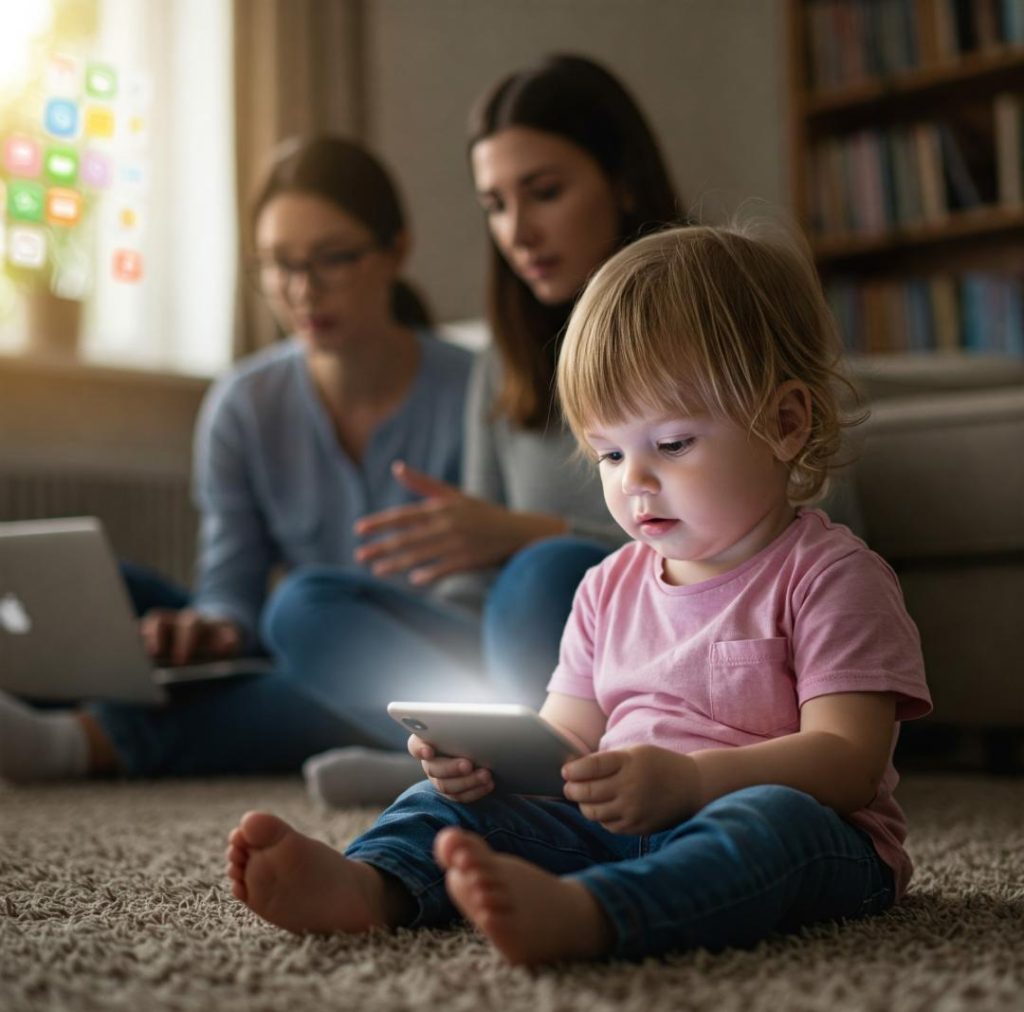
Parenting, Screens & Conditioning: A Digital Age Concern
The rapid advancement of technology has brought about significant changes in the way we live, work, and interact with one another. In today’s digital age, screens have become an integral part of our daily lives, and children are no exception. In fact, children as young as two or three years old are now exposed to screens, with many spending hours each day watching videos, playing games, or chatting with friends online.
While screens can be a valuable tool for learning and entertainment, excessive use can have negative consequences on children’s physical and mental health, social skills, and emotional well-being. A recent incident in Jammu & Kashmir has highlighted the poor screen regulation and lack of parental interaction, where a child was found watching adult content on YouTube despite being in restricted mode.
This incident serves as a wake-up call for parents and caregivers to take a closer look at their children’s screen use and the impact it may be having on their lives. In this blog post, we will explore the concept of classical conditioning and mindful parenting as a means of curbing smartphone addiction in kids and promoting healthy screen use.
Classical Conditioning: A Historical Perspective
Classical conditioning is a psychological phenomenon discovered by Ivan Pavlov, a Russian physiologist, in the early 20th century. Pavlov’s famous experiment involved ringing a bell each time he presented a dog with food, eventually leading the dog to salivate when it heard the bell ring, even in the absence of food.
In the context of parenting, classical conditioning can be applied to understand how children learn and respond to their environment. When children are consistently exposed to screens and rewarded with likes, comments, and attention from others, they begin to associate screen time with pleasure and attention. This can lead to a psychological dependence on screens, making it difficult for them to disengage from their devices.
The Impact of Screens on Children’s Behavior
Excessive screen use has been linked to a range of negative consequences, including:
- Sleep Disturbances: Exposure to screens and the blue light they emit can disrupt sleep patterns, leading to fatigue, irritability, and decreased attention span.
- Social Isolation: Over-reliance on screens can lead to social isolation, decreased empathy, and impaired social skills.
- Obesity and Sedentary Behavior: Prolonged screen time can contribute to a sedentary lifestyle, increasing the risk of obesity and related health problems.
- Mental Health Concerns: Exposure to violent, explicit, or addictive content on screens can contribute to anxiety, depression, and other mental health issues.
Mindful Parenting: A Solution to Smartphone Addiction
Mindful parenting is an approach that emphasizes active involvement, emotional bonding, and conscious decision-making. By being more mindful of their children’s screen use, parents can help them develop healthy habits and a positive relationship with technology.
Here are some mindful parenting strategies to promote healthy screen use:
- Set Boundaries: Establish screen-free zones and times, such as during meals, before bedtime, or during family activities.
- Monitor Screen Time: Keep track of your child’s screen time and set limits on the amount of time they spend on devices.
- Encourage Physical Activity: Encourage your child to engage in physical activities, such as sports, dancing, or simply playing outside.
- Model Healthy Behavior: Children learn from what they see, so make sure you’re modeling healthy screen use habits yourself.
- Engage in Screen-Free Activities: Spend quality time with your child engaging in activities that don’t involve screens, such as reading, puzzles, or board games.
Conclusion
The incident in Jammu & Kashmir highlights the need for parents and caregivers to take a more active role in regulating their children’s screen use and promoting healthy habits. By understanding the concept of classical conditioning and practicing mindful parenting, parents can help their children develop a healthy relationship with technology and reduce the risk of smartphone addiction.
As we move forward in this digital age, it’s essential that we prioritize our children’s well-being and take steps to ensure they’re equipped to navigate the challenges and opportunities that come with technology. By doing so, we can help them develop into healthy, happy, and responsible digital citizens.






